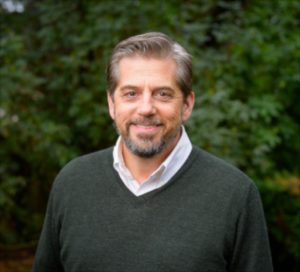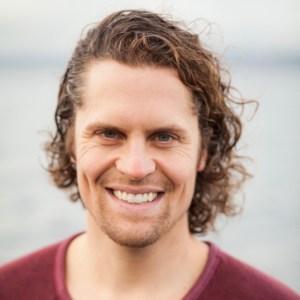We are thrilled to announce an upcoming course taught by Forrest Inslee, Adjunct Faculty, and Ben Katt, founding executive director of the Aurora Commons and host of the RePlacing Church Podcast. “Reading Culture,” coming in the Fall 2017 term, is an innovative and experiential class, in which participants—including Seattle School students and others who are interested in this experience—will be immersed in a neighborhood church (not a classroom) and will learn how to read themselves as they read the needs of a community. Here, Forrest writes about the vision of the class and about why thoughtful qualitative research is relevant—and vital—to the places we serve.
I am excited to be teaching a qualitative research course with Ben Katt at The Seattle School, called Reading Place. And you might wonder: What does qualitative research have to do with the study of theology or psychology? I argue that qualitative research has everything to do these fields of study; if we want to be people who can deal effectively with matters of soul and psyche—to become powerful agents of healing and social change—and if we want to be builders of healthy, thriving communities, we would do well to become empowered with theories and methods of qualitative research. In short, we need to become practitioner researchers.
Now I fear that, simply by using the word RESEARCH I’ve probably lost some readers. But please be assured: It’s not what you think! The kind of research I am talking about stands against the sterile, objectifying, hyper-intellectual associations most people have concerning research of any type. In fact, qualitative research is about love, humility, and deep understanding. It is also about relationship, community, empowerment, and advocacy. For any of us who love and work with people, the tools and sensibilities of the qualitative approach will make us better practitioners—and better human beings.
Let me offer a few thoughts about the power and potential of qualitative research, in the hopes of persuading you of its soul-moving, world-changing value. In particular, let me explain the ways in which this approach to the study of humanity makes us 1) more humble to be able to see beyond our limited assumptions, and 2) more perceptive to deeply understand the people and places we serve.
Seeing beyond ourselves
In order to be able to listen to the heart of her people, the practitioner researcher must learn to hold her own worldview in suspension, and view it even with suspicion, so that she can avoid projecting that worldview onto the world around her. An important term in qualitative research is ethnocentrism. If we’ve ever heard the term used, most likely it will have been used negatively. There are downsides to ethnocentrism for sure, but in fact the word should be seen as a neutral one; ethnocentrism basically describes that aspect of human nature that sees the world through a unique and highly defined cultural perspective—a particular lens, if you will. Indeed, people are essentially cultural beings; we cannot not see the world through the lens of our given culture. And that is good and normal. The unhelpful effect of ethnocentrism occurs when we are only able to see from that limited, self-oriented point of view. In contrast, the qualitative perspective teaches us ways to cultivate the ability to see beyond our culture-bound perspectives, and to nurture the capacity to see our context of service from the perspectives of people we work with.
In the course Ben and I will teach this summer, we’ll actually hold class sessions St. Luke’s Episcopal, an historical church in the Ballard neighborhood of Seattle. We are holding the course at that site so that we can put into practice qualitative skills, even as we learn them (hence, practitioner research). Our hope is that the data our class gathers will help St. Luke’s answer deep and pressing questions about how it can be more relevant to and integrated with the broader Ballard community.
But before we look outward to discover what the community thinks, we will first spend a good amount of time observing ourselves, and asking: what are our own preconceptions, our prejudices, our fears, even our past experiences—all those internal factors that could keep us from seeing and hearing what is really going on in and around the church community? My point is that qualitative research insists that the researcher must first become the researched; the practitioner researcher makes healthy introspection and honest self-assessment prerequisite.
Reading place
Qualitative research gives us tools to astutely interpret and deeply understand the soul of the people and places whom we serve. At the heart of practitioner research is an approach to practical engagement called contextualization. This approach suggests that before we can legitimately, authentically, and effectively engage the needs of people, we need to take the time and effort to learn about the unique characteristics of their particular context. This means understanding the complexities of such dimensions as the culture, economy, social structure, history, ecology, and even spirituality of a given people, place, and time. In great part, this sort of contextual understanding depends on the capacity to discover and hold the stories that define a community. Stories contain and explain the deepest values of a community, a people, the heart of their common experience and their culture.
When we don’t take the time to listen to the stories of a place—when we don’t seek contextual understanding before we engage with the challenges of a particular environment—we are very likely to be ineffective or even actively destructive among the very people we seek to serve.
When the summer course convenes at St. Luke’s, our eventual aim will be to make recommendations about ways the church can connect better to the needs of their specific community context. However, the bulk of our time this summer will be spent not in devising strategies and constructing proposals. Instead, the students will be watching, questioning, listening, observing—seeking to understand the true and deep needs of the community instead of assuming what those needs are. Even more importantly, these emergent practitioner researchers will be seeking to understand local wisdom and to discover the resources already present in the community that might lend themselves to meeting those needs. On the basis of this “interpretive reading” of the Ballard community, Ben and I hope that our students will be able to suggest plans of possible action for St. Luke’s that are truly relevant and essentially sustainable.
Conclusion
To become a practitioner researcher is to become the sort of person who sees beyond the surface of things. It is a way of seeing—and a way of being—that ultimately makes us agents of positive change and healing in a hurting world. This way of “discerning beyond the obvious” also helps us to see beyond ourselves and our own limited perspectives. And ultimately, it opens us up to a world of wonder as we begin to understand the depth and complexity of social reality that surrounds us.
Instructor Bios
 Forrest Inslee is a Seattle native who teaches culture and community development at Northwest University and The Seattle School. He has served as a pastor for many years, including four years as a church planter, worship leader, and theological educator in Istanbul. His most recent research interests include the transformational possibilities of social enterprise in the church, and the potential of ethnographic methods as a means of understanding the heart and soul of community. Most recently he lives Edmonds, Washington with his teenage daughter, Kayra.
Forrest Inslee is a Seattle native who teaches culture and community development at Northwest University and The Seattle School. He has served as a pastor for many years, including four years as a church planter, worship leader, and theological educator in Istanbul. His most recent research interests include the transformational possibilities of social enterprise in the church, and the potential of ethnographic methods as a means of understanding the heart and soul of community. Most recently he lives Edmonds, Washington with his teenage daughter, Kayra.
 Ben Katt is a visionary leader, experienced practitioner, and pioneer in the neighborhood church movement. In 2007 he planted Awake Church along Seattle’s Aurora Avenue, an area struggling with homelessness, addiction, mental illness, and sexual exploitation. Ben was the founding executive director of the Aurora Commons, a neighborhood living room and resource center, and co-founded the Parish Collective, a growing network of neighborhood churches. He supports missional community leaders through the RePlacing Church Podcast as well as through coaching and training with the Thresholds Community. Ben serves as the Regional Leader for the Western U.S. with Christian Reformed Home Missions. He is husband to Cherie and father to Evie, Jackson, and Zara.
Ben Katt is a visionary leader, experienced practitioner, and pioneer in the neighborhood church movement. In 2007 he planted Awake Church along Seattle’s Aurora Avenue, an area struggling with homelessness, addiction, mental illness, and sexual exploitation. Ben was the founding executive director of the Aurora Commons, a neighborhood living room and resource center, and co-founded the Parish Collective, a growing network of neighborhood churches. He supports missional community leaders through the RePlacing Church Podcast as well as through coaching and training with the Thresholds Community. Ben serves as the Regional Leader for the Western U.S. with Christian Reformed Home Missions. He is husband to Cherie and father to Evie, Jackson, and Zara.

